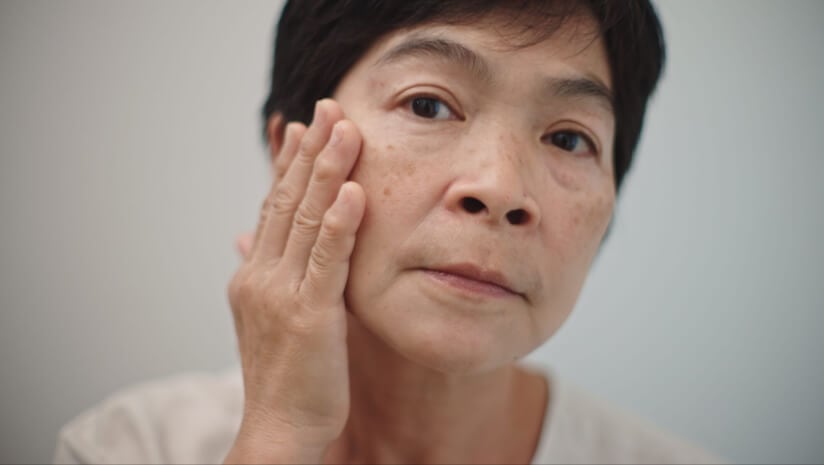Writing in the Journal of Cosmetic Dermatology, researchers from Shanghai Huiwen Biotech Co., which funded the study, evaluated the efficacy of the company’s salmon nasal cartilage-derived proteoglycans powder on skin elasticity, hydration, roughness, wrinkles and pigmentation.
“Both [exogenous and endogenous] aging commonly damage the extracellular matrix in the dermis, particularly collagen, leading to visible skin changes such as pigmentation, thinning of the skin barrier, accelerated formation of wrinkles and loss of skin elasticity,” they noted. “As a result, the search for functional foods that can delay skin aging has become an increasingly popular topic among consumers.”
Founded in 2001 as a spin out of the Chinese Academy of Sciences, Shanghai Huiwen Biotech Co. produces its salmon nose cartilage powder using a water-based enzymatic extraction process. The material is treated at varying temperatures, then separated through ultrafiltration membranes before being freeze dried to produce the proteoglycan product.
Antiaging potential of proteoglycans
Widely found in human skin, cartilage, blood vessels and other connective tissues, proteoglycans contribute to maintaining the structural integrity and functionality of the skin’s extracellular matrix, a complex network of molecules that provides structural support and biochemical cues for skin cells.
The researchers noted that while proteoglycans derived from salmon nasal cartilage differ structurally from human proteoglycans, structural studies support their anti-aging potential.
“Research indicates that proteoglycans derived from salmon nasal cartilage are composed of type II collagen and glycosaminoglycans, such as chondroitin sulfate,” they wrote. “These glycosaminoglycans are covalently linked to specific serine residues within the core protein via a tetrasaccharide linker (glucuronic acid-1,3-galactose-1,3-galactose-1,4-xylose-1), and the G3 domain exhibits significant sequence similarity with human EGF1 [epidermal growth factor-1]”
Proteoglycans have also been studied for their immunomodulatory and anti-inflammatory effects for end points including allergies, infection, wound healing, UV-associated skin damage and joint health.
Study details
The randomized, double-blind, placebo-controlled trial involved 66 healthy Chinese men and women between the ages of 31 and 57. Participants received a daily dose of 20 mg proteoglycans.
Skin parameters were measured at baseline, 28 days and 56 days, assessing skin elasticity, hydration, roughness, wrinkles, melanin content and brown spots while monitoring for any adverse effects.
“Subjects receiving PG supplementation showed significant improvements in skin elasticity and hydration at both 28 days and 56 days, with reductions in skin roughness and wrinkles and a significant decrease in melanin content and brown spots,” the researchers reported. “Compared to the placebo group, the PG group exhibited significant improvements in most skin parameters by 56 days, except in the wrinkle area percentage at the crow’s feet, where no significant difference was observed.”
They added that the proteoglycans were well tolerated, with no adverse effects such as skin redness, itching, dryness, flaking, sensitivity or gastrointestinal distress reported and noted that daily intake of the 20 mg used falls well within the Japan Health & Nutrition Food Association recommendation of no more that than 3 g of proteoglycans a day.
The study called for future research to confirm these findings in more diverse populations, considering factors such as age, ethnicity and skin type. They also acknowledged the need to explore the underlying mechanisms of these potential beneficial effects—whether achieved through beneficial gut microbiota, binding to L-selectin for immune regulation, inhibition of the inflammatory cytokine storm or other.
Source: Journal of Cosmetic Dermatology. doi: 10.1111/jocd.70218. “Clinical Trial of Salmon Nasal Cartilage-Derived Proteoglycans on Human Facial Antiaging: A Randomized, Double-Blind, Placebo-Controlled Study”. Authors: Xue-dong Bai et al.

